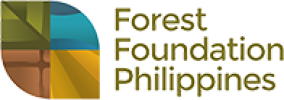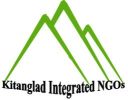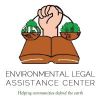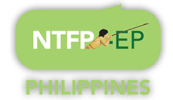Philippines
The Philippines is a biodiversity rich and culturally diverse country with an estimated 14-17 million Indigenous Peoples (IPs) belonging to 110 ethno-linguistic groups. The country’s last remaining rainforests are located in indigenous territories and in areas managed by upland rural poor communities (IP&LCs). IP&LCs have had significant contributions to maintaining the last remaining forest cover of the country. The majority of IP&LCs are dependent on extraction of forest resources for their daily survival. Poverty has driven communities towards unsustainable practices such as charcoal making (“uling”) and mono-cropping of cash crops.
Since 2004, the government has been actively promoting large-scale mining for nickel, copper, gold and other metals and minerals. The pressure to open up also the last remaining forests for resource extraction, energy and infrastructure projects and plantation development is very present. The Philippine Development Plan, including the national COVID-19 post-recovery plan, is largely geared towards investments in agribusiness ventures and extractives.
While the regulatory regime does feature stringent environmental regulation and compliance mechanisms, decisions around natural resources in practice are in favor of large-scale development projects, both driven by foreign and local investments. Indigenous rights to Free Prior Informed Consent are ideally effective governance counter-balance to the economic drive towards full resource exploitation but the consent process, many times, has neither been free, nor informed, nor done prior to approving economic development priorities.
Recent changes in policy and practice have further constricted the civic space for indigenous peoples and community organisations, NGOs and other civil society groups to freely and safely operate. There is a need to push back and widen civic space through asserting civil liberties, challenging laws and policies which violate freedoms, and pushing for laws that compel the government to protect (women) environmental defenders and communities.
Philippines programme
The programme aims to support IP&LCs to install and strengthen sustainable and inclusive forest management mechanisms in four major forest landscapes: Sierra Madre of Luzon, Southern Palawan, Northern Mindanao and South Central Mindanao. It seeks to strengthen inclusive forest governance in indigenous and community-conserved areas. National lobby efforts are directed at influencing the government to address destructive mining as a key driver of deforestation, enact green bills (alternative mining law, forestry, land use), and defend (Women) Environmental and Human Rights Defenders ((W)EHRDs), IP&LC governance and forest conservation. Such issues shall be amplified in social and mainstream media, and national level alliances and networks.
Key strategies are strengthening the capacity of IP&LCs and Civil Society in documenting human rights violations, community journalism, gender equality and social inclusion, climate change, rights and security to build alliances and engage in effective lobby and advocacy to improve policy development and enforcement, transparency and support for forest restoration and sustainable, viable and climate resilient livelihoods
Programme partners
The Philippine CSO partners include environmental/ human rights/ indigenous rights defenders and support groups, lobby and advocacy groups, public interest law groups, and grant-making institutions which include NTFP EP Philippines (Non-Timber Forest Products Exchange Program Philippines), Institute for the Development of Educational and Ecological Alternatives, Inc. (IDEAS), Environmental Legal Assistance Center (ELAC), Legal Rights and Natural Resources Center (LRCKSK/FoEPhils), Mabuwaya Foundation, Alyansa Tigil Mina (ATM), Kitanglad Integrated NGOs, Inc. (KIN), Lilak Purple Action for Indigenous Women’s Rights (LILAK), Forest Foundation Philippines and the Samdhana Institute.










